 by our College Data Analytics Team
by our College Data Analytics TeamWe've gathered data and other essential information about the program, such as the average salary of graduates, ethnicity of students, how many students graduated in recent times, and more. In addition, we cover how UMN Twin Cities ranks in comparison to other schools with nutrition science programs.
Jump to any of the following sections:
UMN Twin Cities is in the top 10% of the country for nutrition science. More specifically it was ranked #6 out of 76 schools by College Factual. It is also ranked #1 in Minnesota.
| Ranking Type | Rank |
|---|---|
| Best Nutrition Science Bachelor’s Degree Schools | 5 |
| Best Nutrition Science Schools | 6 |
During the 2021-2022 academic year, University of Minnesota - Twin Cities handed out 56 bachelor's degrees in nutrition science. This is a decrease of 10% over the previous year when 62 degrees were handed out.
In 2022, 7 students received their master’s degree in nutrition science from UMN Twin Cities. This makes it the #49 most popular school for nutrition science master’s degree candidates in the country.
In addition, 5 students received their doctoral degrees in nutrition science in 2022, making the school the #12 most popular school in the United States for this category of students.
The median salary of nutrition science students who receive their bachelor's degree at UMN Twin Cities is $32,676. This is great news for graduates of the program, since this figure is higher than the national average of $30,311 for all nutrition science bachelor's degree recipients.
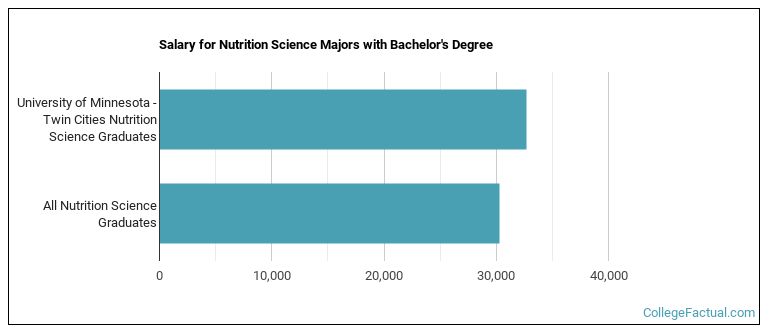
While getting their bachelor's degree at UMN Twin Cities, nutrition science students borrow a median amount of $32,714 in student loans. This is higher than the the typical median of $30,786 for all nutrition science majors across the country.
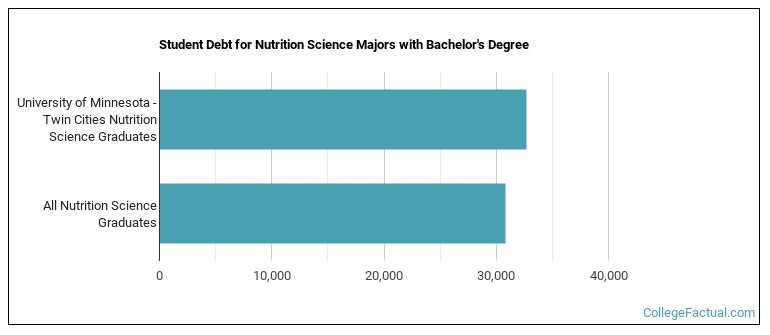
The typical student loan payment of a bachelor's degree student from the nutrition science program at UMN Twin Cities is $288 per month.
In 2022-2023, the average part-time undergraduate tuition at UMN Twin Cities was $1,324 per credit hour for out-of-state students. The average for in-state students was $558 per credit hour. Information about average full-time undergraduate tuition and fees is shown in the table below.
| In State | Out of State | |
|---|---|---|
| Tuition | $14,496 | $34,410 |
| Fees | $1,992 | $1,992 |
| Books and Supplies | $1,000 | $1,000 |
| On Campus Room and Board | $13,028 | $13,028 |
| On Campus Other Expenses | $2,350 | $2,350 |
Learn more about UMN Twin Cities tuition and fees.
The nutrition science program at UMN Twin Cities awarded 56 bachelor's degrees in 2021-2022. About 21% of these degrees went to men with the other 79% going to women.
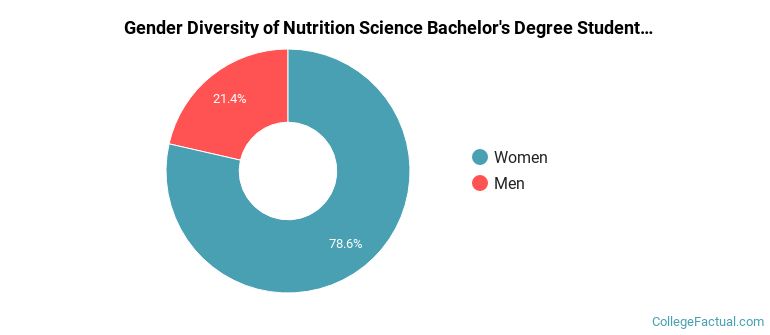
The majority of the students with this major are white. About 73% of 2022 graduates were in this category.
The following table and chart show the ethnic background for students who recently graduated from University of Minnesota - Twin Cities with a bachelor's in nutrition science.
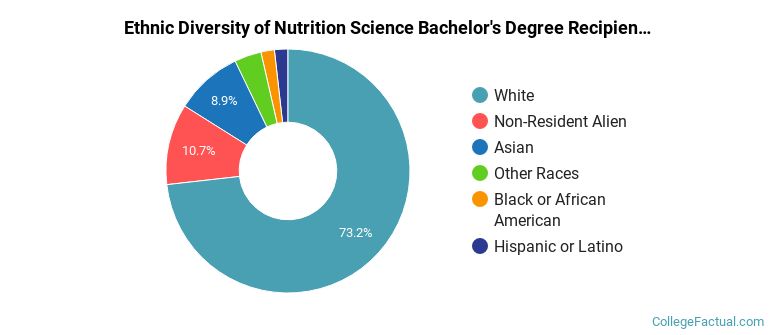
| Ethnic Background | Number of Students |
|---|---|
| Asian | 5 |
| Black or African American | 1 |
| Hispanic or Latino | 1 |
| White | 41 |
| Non-Resident Aliens | 6 |
| Other Races | 2 |
Online degrees for the UMN Twin Cities nutrition science bachelor’s degree program are not available at this time. To see if the school offers distance learning options in other areas, visit the UMN Twin Cities Online Learning page.
Of the 14 students who earned a master's degree in Nutrition Science from UMN Twin Cities in 2021-2022, 7% were men and 93% were women.
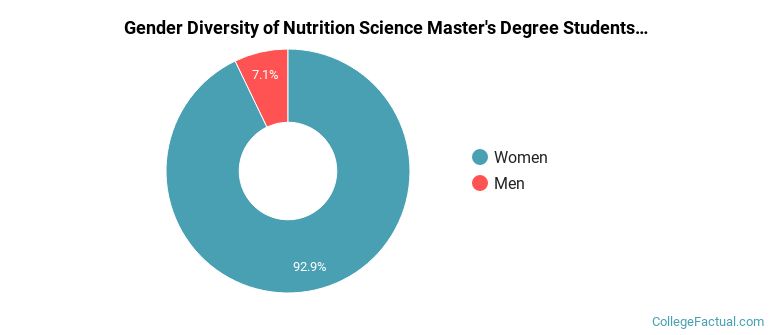
The majority of the students with this major are white. About 79% of 2022 graduates were in this category.
The following table and chart show the ethnic background for students who recently graduated from University of Minnesota - Twin Cities with a master's in nutrition science.
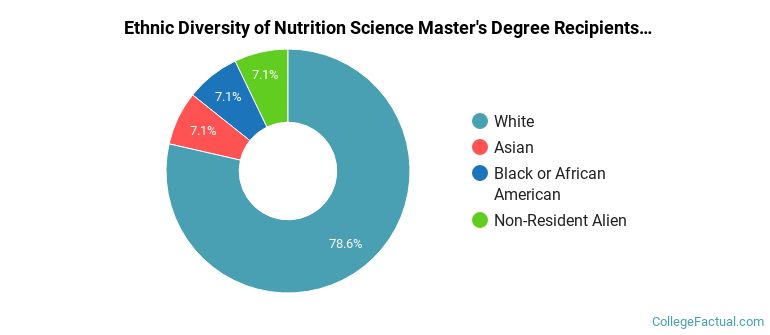
| Ethnic Background | Number of Students |
|---|---|
| Asian | 1 |
| Black or African American | 1 |
| Hispanic or Latino | 0 |
| White | 11 |
| Non-Resident Aliens | 1 |
| Other Races | 0 |
Take a look at the following statistics related to the make-up of the nutrition science majors at University of Minnesota - Twin Cities.
| Related Major | Annual Graduates |
|---|---|
| Other Multi/Interdisciplinary Studies | 522 |
| Data Analytics | 55 |
| Data Science | 31 |
| Cultural Studies and Comparative Literature | 13 |
| Environmental Geosciences | 10 |
More about our data sources and methodologies.